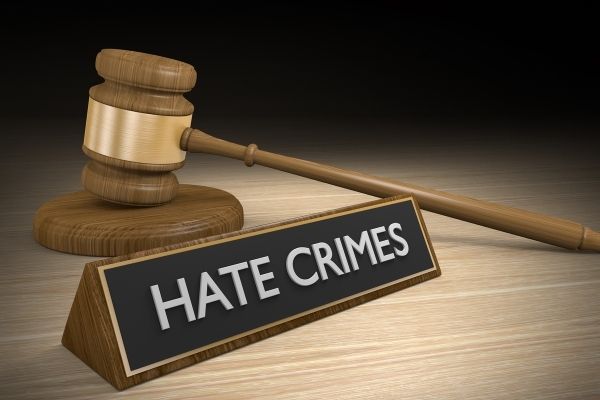Deadline: 23-May-2024
The United Nations Development Programme (UNDP) is seeking proposals from civil society organizations (CSOs), including NGOs for application of small grants to conduct public awareness-raising outreaches and information dissemination on alternatives to conflict resolution related to intra and intercommunal conflicts and cattle rustling, and crime prevention in Pulbura in Yuai County and Burmath in Akobo County Jonglei State and Lekuangule in GPAA.
UNDP South Sudan’s Access to Justice, Security and Human Rights Strengthening Programme, supported by the United Nations Multi-Partner Trust Fund on Reconciliation, Stabilization, and Resilience aims to facilitate stabilization in Jonglei State and Greater Pibor Administrative Area by improving community security for the most vulnerable people. This would be done by empowering the most vulnerable people especially women and girls, youth, SGBV survivors, IDPs, and returnees who are at a risk of violence and human rights violations, to claim their rights and fully participate in identifying solutions for addressing crime and violence and resolving intercommunal conflicts.
To achieve this, UNDP is seeking two competent and reputable Civil Society Organizations (CSOs), or National Non-Governmental Organizations (NNGOs) or Community-Based Organizations (CBOs) to conduct public awareness-raising outreaches and information dissemination on crime prevention, alternatives to dispute resolution in Pulbura in Uror County and Burmath Akobo County in Jonglei State and Lekuangule in GPAA for seven (7) months to complement the activities of the Inter Communal Governance Structures and dispute resolution mechanisms that will be established to address intercommunal disputes including cattle raiding and abductions.
Objectives
- The overarching objective of the grant is to identify TWO competent and reputable civil society organizations (CSOs), national non-governmental organizations (NNGOs) or community-based organizations to conduct public awareness-raising outreaches and information dissemination on crime prevention and alternatives to dispute resolution. The specific objectives are:
- To raise public awareness on the role of the community in crime prevention, alternatives to dispute resolution related to intercommunal conflicts, cattle rustling and abduction through outreaches like talks in churches, schools, social gatherings (sports), public meetings etc.
- Empower the community members especially the customary leaders, youths, women and religious leaders with knowledge and skills mediation, conciliation and negotiation and their role in community security.
- Widely disseminate information on alternatives to dispute resolution related to intercommunal conflicts and cattle rustling, crime prevention including prevention of SGBV, and dispute resolution mechanisms through IEC materials, boom boxes, live radio talk shows, radio drama and jingles.
- Advocate for the ending of harmful cultural practices that impacts negatively on women and girls lives in the two project locations.
- Establish conflict and security early warning system in the two locations to enhance preparedness and sharing of information relevant to the mitigation of potential threats to peace and security.
Funding Information
- The budget should be detailed, complete, rational, and realistic, and must not exceed the equivalent of USD$ 35,000.00 per project location (Pulbura and Burmath as one project location) in Jonglei State and second location is Lekuangule in GPAA).
Duration
- The duration of the project shall be seven (7) months.
Expected Results
- The CSOs/NNGOs/CBOs are encouraged to develop their own expected results based on their analysis of the needs and particularities of the context. However, expected results will include the following:
- 500 community members reached monthly per location through outreaches, meetings, sports events/activities with messages/information on crime prevention, coexistence, alternatives to dispute resolution mechanisms related to intercommunal conflicts, abductions, and cattle rustling.
- 25,000 beneficiaries reached monthly per location through radio talk shows, jingles, and radio drama, with information on alternatives to dispute resolution mechanisms related to intercommunal conflicts, abductions, cattle rustling, crime prevention including prevention of SGBV.
- 100 community leaders (customary leaders, women leaders, youth leaders and religious leaders) per location are empowered with knowledge and skills on alternative to dispute resolution and their role in community security.
- 5 Round table discussions with the leadership and stakeholders in each location. The round tables discussions target 10 leaders and stakeholders per location per discussion.
- 20,000 IEC materials (flyers, wrist bands etc.) in local languages with messages of on alternatives to dispute resolution, coexistence, crime prevention especially SGBV, abduction and cattle rustling are disseminated.
- 2 drama/plays to sensitize the community members on dispute resolution mechanisms, crime prevention etc. The targeted audience/beneficiaries are 1500.
- 55% of the community members are knowledgeable on their role in crime prevention, community security and prefer resolving conflicts amicably through mediation, negotiation, and conciliation than violence.
- 6 Monthly analytical reports and 1 comprehensive end of project report properly documented and accurately reported.
Eligibility Criteria
- The CSO/NNGO/CBO must meet the following criteria to be eligible for selection:
- Be legally registered as CSO/NNGO/CBO with the Ministry of Justice and Constitutional Affairs and in possession of a valid registration certificate.
- The mandate and founding document should be in line with the activities for which the fund is being sought.
- Have proof of an established office in the proposed location of implementation (letter from RRC coordinator), as well as experience in implementing similar/related activities.
- The CSO/NGO/CBO must not have been awarded a grant by UNDP the last one year.
- One CSO or a Consortium to apply for implementation in only one location.
For more information, visit UNDP.
